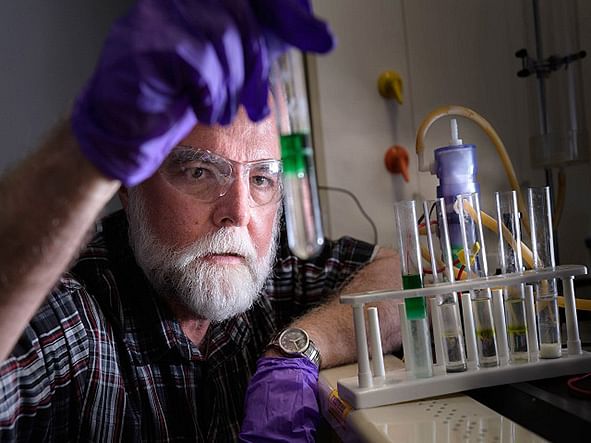Indiana’s Purdue University develops instantly rechargeable batteries for cars
IF battery LLC promises instant charge for EV battery. The innovation intends to change the future of electric and hybrid automobiles.
Purdue Research University of Indiana has developed a new technology to instantly recharge electric and hybrid vehicle batteries, the process similar to refuelling a traditional petrol or diesel car.
The innovative method is claimed to be safe, affordable and environment friendly. The new technology will not only eliminate the time needed to stop and recharge EV’s battery but also reduce the need for new infrastructure that will be required as support for recharging stations. This will further help to scale up adoptions of electric and hybrid vehicles.
John Cushman, professor of earth, mathematics, atmospheric & planetary science, at Purdue University presented his research findings “Redox reactions in immiscible-fluids in porous media – membraneless battery applications” at International Society for Porous Media 9th International Conference in Rotterdam, Netherlands. Cushman has co-founded Ifbattery LLC (IF-battery) to further develop and commercialise the technology.

“Electric and hybrid vehicle sales are growing worldwide and the popularity of companies like Tesla is incredible, but there continues to be strong challenges for industry and consumers of electric or hybrid cars,” said Cushman, who led the research team that developed the technology. “The biggest challenge for industry is to extend the life of a battery’s charge and the infrastructure needed to actually charge the vehicle. The greatest hurdle for drivers is the time commitment to keeping their cars fully charged.”
Current electric cars need convenient locations built for charging ports.
“Designing and building enough of these recharging stations requires massive infrastructure development, which means the energy distribution and storage system is being rebuilt at tremendous cost to accommodate the need for continual local battery recharge,” said Eric Nauman, co-founder of Ifbattery and a Purdue professor of mechanical engineering, basic medical sciences and biomedical engineering. “Ifbattery is developing an energy storage system that would enable drivers to fill up their electric or hybrid vehicles with fluid electrolytes to re-energise spent battery fluids much like refueling their gas tanks.”
The spent battery fluids or electrolyte could be collected and taken to a solar farm, wind turbine installation or hydroelectric plant for re-charging.
“Instead of refining petroleum, the refiners would reprocess spent electrolytes and instead of dispensing gas, the fueling stations would dispense a water and ethanol or methanol solution as fluid electrolytes to power vehicles,” Cushman said. “Users would be able to drop off the spent electrolytes at gas stations, which would then be sent in bulk to solar farms, wind turbine installations or hydroelectric plants for reconstitution or re-charging into the viable electrolyte and reused many times. It is believed that our technology could be nearly ‘drop-in’ ready for most of the underground piping system, rail and truck delivery system, gas stations and refineries.”
Mike Mueterthies, Purdue doctoral teaching and research assistant in physics and the third co-founder of Ifbattery, said the flow battery system makes the Ifbattery system unique. “Other flow batteries exist, but we are the first to remove membranes which reduces costs and extends battery life,” Mueterthies said.
“Membrane fouling can limit the number of recharge cycles and is a known contributor to many battery fires,” Cushman said. “Ifbattery’s components are safe enough to be stored in a family home, are stable enough to meet major production and distribution requirements and are cost effective.”
Ifbattery licensed part of the technology through the Purdue Research Foundation Office of Technology Commercialisation and has developed patents of its own. The company is a member of the Purdue Startup Class of 2017. “We are at a stage in the company’s growth that we are looking for additional financing to build large-scale prototypes and subsequently manufacturing partners,” Cushman added.
RELATED ARTICLES
Sept 2024 From R&D incentives to EV infrastructure: What auto components industry expects from Budget 2024
Sept 2024 From R&D incentives to EV infrastructure: What auto components industry expects from Budget 2024
US car majors hit the brakes on driverless cars
Ford Motor and Volkswagen to close self-driving startup Argo AI, due to lack of technology and clear regulations.
Autoliv and Geely to develop advanced safety tech for future vehicles
Scope of cooperation includes safety for high-level autonomous driving, intelligent steering wheel technology, a 360deg ...






 07 Jun 2017
07 Jun 2017
 2435 Views
2435 Views





 Autocar Pro News Desk
Autocar Pro News Desk




